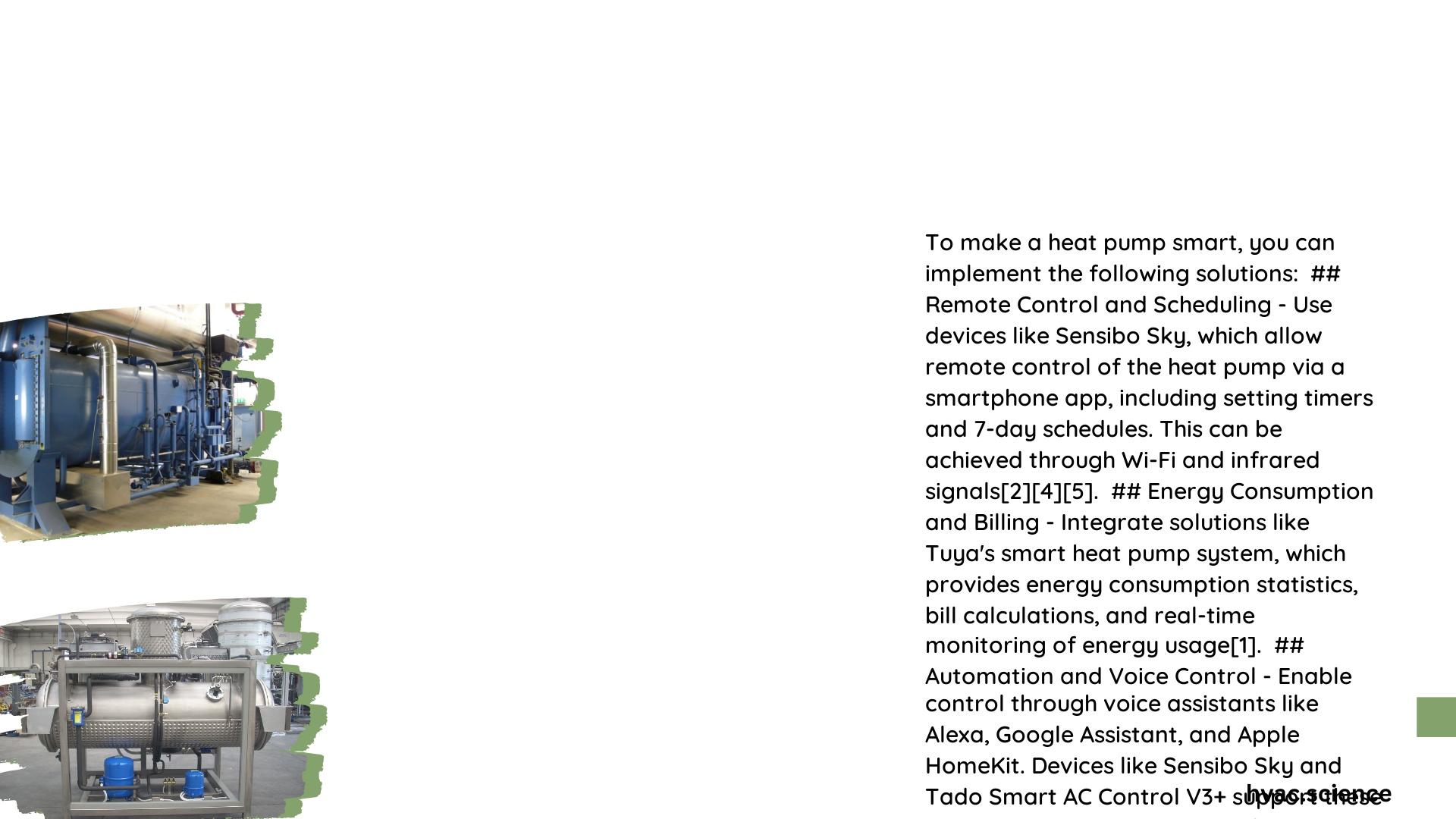Modern heat pump systems are transforming home and commercial energy management through intelligent technologies that optimize performance, reduce energy consumption, and enhance comfort. By integrating advanced sensors, adaptive control algorithms, and smart connectivity, homeowners and facility managers can dramatically improve their heat pump’s efficiency, responsiveness, and overall operational intelligence.
What Are Smart Heat Pump Technologies?
Smart heat pump technologies represent a sophisticated approach to heating and cooling systems that leverage advanced computational and sensing capabilities. These technologies enable real-time monitoring, predictive maintenance, and dynamic performance optimization.
How Can Sensors Enhance Heat Pump Intelligence?
Smart heat pumps utilize multiple sensor types to improve performance:
| Sensor Type | Function | Performance Impact |
|---|---|---|
| Temperature Sensors | Monitor indoor/outdoor temperatures | 15-25% energy savings |
| Humidity Sensors | Control moisture levels | Improved comfort control |
| Occupancy Sensors | Detect room usage | Targeted heating/cooling |
What Control Algorithms Improve Heat Pump Efficiency?
Inverter-Driven Compressor Technology
- Dynamically adjusts motor speed
- Matches exact cooling/heating requirements
- Reduces energy consumption by 30-40%
Outdoor Reset Control
- Automatically adjusts water temperature
- Responds to external temperature changes
- Prevents unnecessary energy expenditure
Which Smart Thermostat Options Exist?
- EcoBee Smart Thermostat
- Online temperature monitoring
- Occupancy-based scheduling
-
Potential energy savings up to 23%
-
Mitsubishi Electric Smart Controls
- 3D occupancy sensing
- Adaptive temperature management
- Compatible with multiple indoor units
What Are Retrofit Options for Existing Systems?
Retrofitting existing heat pumps involves:
– Installing smart control modules
– Upgrading sensor systems
– Integrating wireless communication interfaces
– Implementing software updates
How Much Can Smart Technologies Save?
Potential energy savings range:
– Residential systems: 20-35%
– Commercial applications: 35-50%
– Advanced integrated systems: Up to 60% reduction
Technical Implementation Strategies

Compatibility Considerations
- Assess existing infrastructure
- Verify communication protocols
- Ensure electrical system compatibility
- Plan professional installation
Cost-Benefit Analysis
- Initial investment: $500-$3,000
- Estimated annual energy savings: $200-$800
- Typical payback period: 2-5 years
Professional Recommendations
- Conduct comprehensive system assessment
- Choose compatible smart technologies
- Work with certified HVAC professionals
- Plan phased implementation
- Monitor system performance regularly
Key Technological Components
- Microprocessor-based controllers
- Wireless communication modules
- Advanced refrigerant management
- Machine learning algorithms
What Future Innovations Await?
Emerging technologies like AI-driven predictive maintenance and cloud-based performance optimization promise even more sophisticated heat pump intelligence in coming years.
Final Technical Insights
Smart heat pump technologies represent a convergence of mechanical engineering, computer science, and energy management. By embracing these innovations, users can transform traditional heating and cooling systems into responsive, efficient, and intelligent environmental control platforms.
Limitations and Considerations
- Initial cost of implementation
- Complexity of advanced systems
- Potential compatibility challenges
- Ongoing maintenance requirements
References:
1. Daikin Applied SmartSource Compact
2. Mitsubishi Electric Heat Pump Systems
3. Green Building Advisor Heat Pump Technologies
